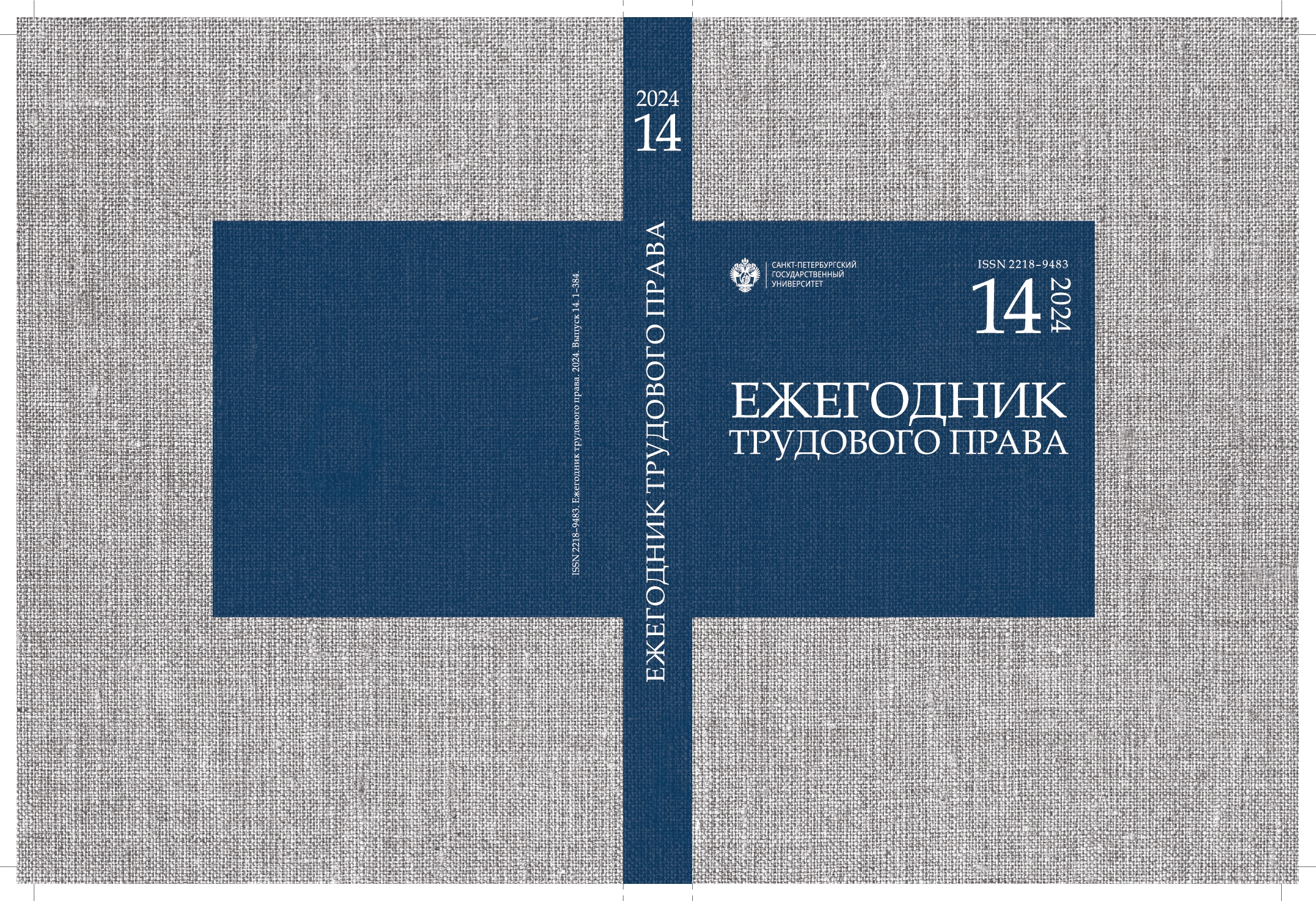Reasons for the instability of labor relations between teachers and educational organizations of higher education in the Russian Federation
DOI:
https://doi.org/10.21638/spbu32.2024.104Abstract
When concluding an employment contract, its parties: a teacher and an educational organization of higher education (employer) are mutually independent, free and equal. However, when determining the content (conditions) of an employment contract, it is hardly possible to rely only on the equality of the parties. Both the teacher and the employer, when determining the terms of the employment contract, first of all, defend their interests. When a compromise is reached and an employment contract is concluded, one can count on the stable nature of the employment relationship. In this case, when concluding an employment contract, labor relations will be stable. In order to achieve stability in labor relations, the parties to an employment contract must come to a certain compromise on all the terms of the employment contract, including its duration. It should be recognized that the most acceptable for a teacher to maintain stable employment relations in the future is the conclusion of an employment contract for an indefinite period in accordance with Part 1 of Art. 332 of the Labor Code of the Russian Federation. However, this type of employment contract is evaluated differently by teachers and employers. A teacher, as a rule, focuses on a long-term employment relationship or on the conclusion of a fixed-term employment contract, but for a maximum period of five years. In turn, the employer is interested in concluding an employment contract, where there is no long-term nature of legal relations, and as a stronger party imposes on the teacher the conclusion of a fixed-term employment contract for shorter periods (for one year or one semester). The conclusion of such "short-term" employment contracts violates the balance of interests of the parties to labor relations in favor of the employer and provokes their instability. This article will consider only some of the reasons that cause instability of labor relations between a teacher and an educational organization with repeated conclusion of fixed-term employment contracts between them for the shortest possible time.
Keywords:
fixed-term employment contract, pedagogical worker, stability, competition, term of election, labor relations, pedagogical collective
Downloads
References
Библиография
Завгородний, Александр В. 2021. Конкурс в российском трудовом праве и его значение для возникновения трудовых (служебных) правоотношений. Москва: Проспект.
Ломакина, Любовь А. 2021. «Баланс интересов в трудовых отношениях.» Журнал российского права 6: 104–116.
Лютов, Никита Л. 2018. «Срочный трудовой договор как инструмент неустойчивой занятости: многократное перезаключение и возможность заключения с научно-педагогическими работниками.» Трудовое право в России и за рубежом 4: 20–23.
Пономарева, Татьяна М. 2011. «Баланс интересов сторон трудового договора.» Вестник Омской юридической академии 4 (17): 32–37.
Смирнов, Всеволод Н. 1960. Конкурс в советском трудовом праве. Ленинград: Изд-во ЛГУ.
Чиканова, Людмила А., и Алия Ф. Нуртдинова. 2017. «Трудовые права работников: проблемы реализации и злоупотребления правами.» Хозяйство и право 11: 62–74.
References
Chikanova, Lyudmila A., and Aliya F. Nurtdinova. 2017. “Labor rights of workers: Problems of implementation and abuse of rights.” Khoziaistvo i pravo 11: 62–74. (In Russian)
Lomakina, Lyubov A. 2021. “Balance of interests in labor relations.” Zhurnal rossiiskogo prava 6: 104–116. (In Russian)
Lyutov, Nikita L. 2018. “Fixed-term employment contract as an instrument of precarious employment: Multiple re-conclusion and the possibility of concluding with scientific and pedagogical workers.” Trudovoe pravo v Rossii i za rubezhom 4: 20–23. (In Russian)
Ponomareva, Tatyana M. 2011. “Balance of interests of the parties to the employment contract.” Vestnik Omskoi iuridicheskoi akademii 4 (17): 32–37. (In Russian)
Smirnov, Vsevolod N. 1960. Competition procedure in Soviet labor law. Leningrad: Leningrad University Press. (In Russian)
Zavgorodniy, Alexander V. 2021. Competitivе procedure in Russian labor law and its significance for the origin of labor (service) legal relations. Moscow: Prospekt Publ. (In Russian)
Downloads
Published
How to Cite
Issue
Section
License
Articles of "Russian Journal of Labour & Law" are open access distributed under the terms of the License Agreement with Saint Petersburg State University, which permits to the authors unrestricted distribution and self-archiving free of charge.




